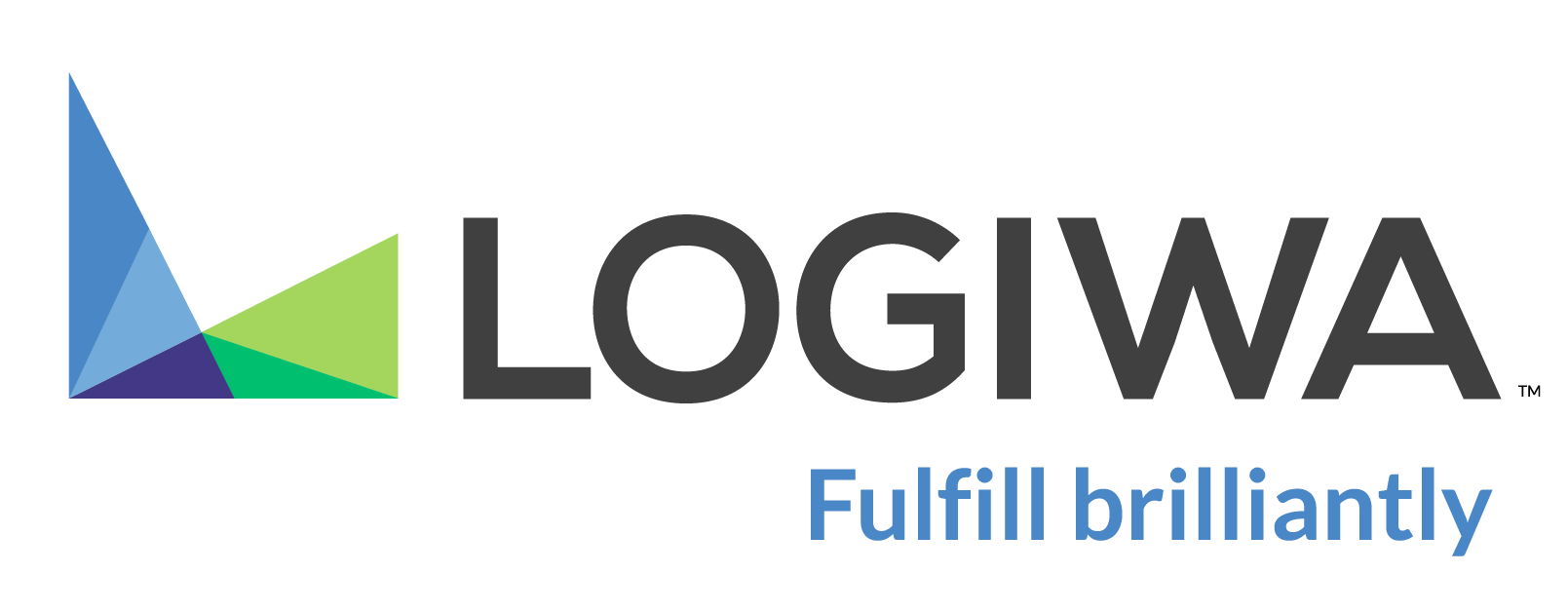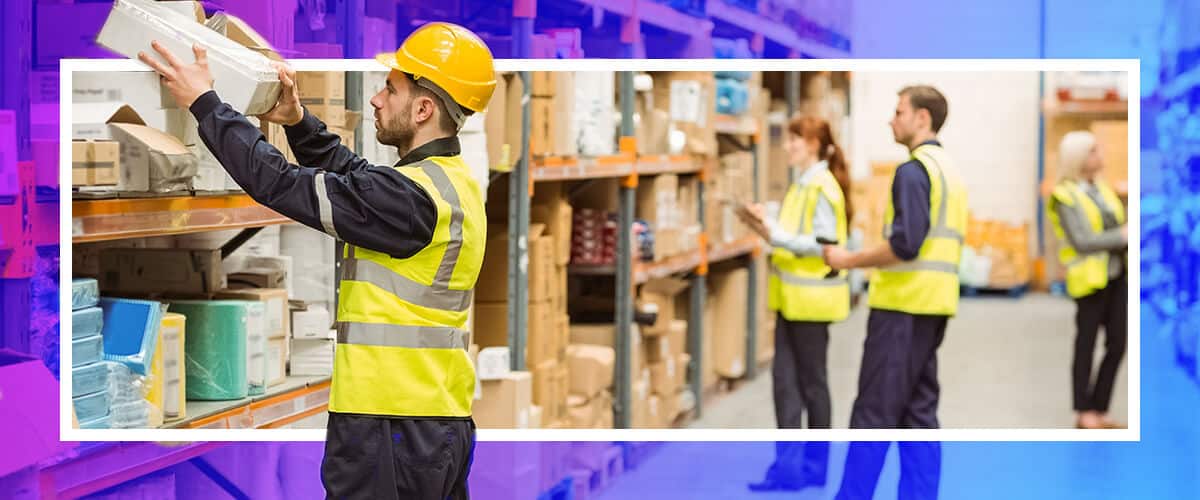Known for their ability to optimize inventory management processes, third-party logistics providers (3PLs) have the expertise and resources needed to help store, pick, pack, and ship inventory to consumers, and to fill orders quickly and accurately. The result is a more resilient supply chain, smoother warehousing processes, higher customer satisfaction — and greater profitability.
In this article, we’ll survey the benefits of outsourcing inventory management to a 3PL partner and check out how order fulfillment software facilitates 3PL operations.
5 reasons to outsource to a 3PL
Managing all the components of a growing business can be a daunting challenge. Outsourcing inventory management to a 3PL allows for offloading of tedious shipping workflows, freeing up space for mission-critical processes. 3PLs are inventory management experts with the tools and infrastructure in place that can help make the most of operations. Here’s what they bring to the table.
1. Cost savings
While there may be an upfront investment in partnering with a 3PL provider, the long-term savings more than make up for the cost. 3PLs create savings for their customers in multiple ways, including:
- Technology: From radio frequency identification tags to warehouse management system (WMS) (also known as warehouse management software), it takes a lot of technology to run an efficient warehouse. 3PLs already have the latest technology available, saving on purchasing costs.
- Warehousing space: The cost of renting warehousing space rose to $9.72/sq. ft. in 2023. Asset-based 3PLs have access to their own warehousing space and can lock in warehousing costs to shield from market uncertainty.
- Resource sharing: Because 3PLs network with carriers and other logistics providers, they often get better deals on shipping rates and other warehousing costs. These savings are passed on to the customer.
2. Scalability and Flexibility
Demands can change within a moment’s notice, so a company must be able to adapt. Services can be shifted up or down according to business needs, expanding warehousing processes while only paying for services actually in use. This allows for quick adjustments to market fluctuations caused by Peak Season demand or other factors, improving business agility.
3PLs also have access to a broader network of distribution centers strategically located across the country. If a large portion of customers are in a certain region, select the warehouse that’s closest to them.
3. Expertise and advanced technology
3PLs don’t just have leading-edge logistics technology — they have the expertise that it takes to optimize warehousing processes. 3PL providers possess specialized knowledge in logistics and supply chain management and are fluent in best practices such as lean warehousing and navigating supply chain disruptions. They’re often the first to implement next-generation order fulfillment technologies such as AI and robotics — and they’ve got the know-how to use them effectively.
4. Core competencies
A business’ core competency should be developing the best products for its consumers and learning how best to reach their base — not inventory management processes. Outsourcing inventory management to a 3PL allows brands to concentrate on product development and marketing, returning the focus to the core of their business.
5. Customer satisfaction
Logistics specialists can provide fast, reliable order fulfillment and achieve perfect order rates for consumers. 3PLs also offer enhanced delivery options and tracking capabilities so that customers can know where their product is at all times, improving satisfaction.
Logiwa’s 3PL software
Outsourcing logistics to a 3PL offers many business advantages, but none are possible without the right software to drive them. 3PL inventory management software is crucial for building an agile supply chain, empowering companies to make smarter decisions and get products out faster. These interoperable, flexible, and intelligent tools can elevate each phase of order fulfillment operations.
Comprehensive Fulfillment Management System
Without the ability to intelligently oversee an entire supply chain and order fulfillment processes, 3PLs’ operations would come to a screeching halt. Companies use WMS software to complete their order fulfillment workflows such as picking, packing, shipping, and inventory control, but modern supply chains have become so complex that they need even more intelligent software for end-to-end order transparency. They need fulfillment management software (FMS) like Logiwa IO.
FMS go beyond the capabilities of legacy WMS to deliver a comprehensive fulfillment solution. They integrate traditional warehouse management functionalities with omnichannel order visibility. Some of their functionalities include:
- on-demand data access over both inventory workflows and order fulfillment channels;
- real-time inventory tracking and reporting;
- a unified, intuitive interface over all fulfillment processes; and
- AI-powered adaptability to continuously optimize warehouse operations.
The right software is key for making the most of warehouse processes. Intelligent WMS and FMS systems can help forecast demand, scale operations, and achieve perfect order rates.
Automation and efficiency
3PL WMS and FMS software have built-in automation functionalities, optimizing everyday warehousing workflows such as:
- picking,
- packing,
- shipping,
- inventory tracking, and
- order refills.
The AI-powered automation that Logiwa 3PL software provides increases order processing speed while reducing errors caused by a human element. The result is higher order accuracy, faster delivery, and higher profitability.
Agility and adaptability
Outsourcing inventory management to a 3PL makes businesses more agile — but not without the right software in place. Instead of having to support their own IT environment, merchants can use the cloud-based infrastructure that 3PL software provides to support clients and warehouses nationwide. This lets them scale their operations up and down and avoid paying for services they don’t use and helps them adapt to various product types and fulfillment models, which makes their business more flexible.
Client visibility and control
WMS and FMS solutions enable 3PLs to offer better visibility to merchants. For example, Logiwa 3PL software features customizable portals that provide clients with real-time inventory tracking. The result is higher visibility into warehousing processes and better communication between 3PLs and clients.
Seamless integrations
As merchants expand business, their IT environment becomes more complex. 3PL software possesses a user-friendly interface that serves as a centralized hub for clients’ order fulfillment workflows, streamlining the stack. These platform’s integrations with other leading ecommerce systems and carriers make it easy to connect the other links in the supply chain.
Scale up business with Logiwa IO
Outsourcing inventory management to a 3PL partner can elevate warehousing processes — and subsequently the rest of the business. 3PLs have the technology, warehousing capacity, and infrastructure in place to improve inventory management workflows and provide the labor and overhead savings to focus on sales, product development, and other core business processes. The result is faster shipping, leaner inventory management strategies, and greater customer satisfaction — all of which boost the bottom line.
Logiwa is at the forefront of the order fulfillment industry. Our flagship fulfillment platform Logiwa IO goes beyond conventional WMS capabilities to help companies optimize inventory processes across operations. Our solution leverages the latest in AI and predictive analytics, empowering 3PLs to deliver services for businesses to scale successfully.
Contact us today to request a demo of the Logiwa 3PL platform.
FAQs about 3PLs
What are the main benefits of a 3PL provider?
The infrastructure that 3PLs have at their disposal also allows for greater flexibility and scalability, so it’s no problem to adapt to abrupt changes in market demand.
3PLs also have the latest software in place, complete with AI and predictive analytics functionalities, giving greater visibility and transparency into inventory management processes.
What questions should I ask when I sign up for a 3PL's services?
Outsourcing inventory management to a 3PL can be a significant commitment, so seek out a provider that’s suitable for a long-term partnership. Some questions to ask include:
- How many warehouses do you operate?
- Where are your warehouses located?
- How many orders do you ship per month — especially in my business vertical (B2B, B2C, DTC, industry-specific, etc.)?
- What’s your current warehousing capacity?
- How large is your transportation fleet?
- Do you use WMS or FMS?
Also, be sure to ask how much experience the 3PL has, as well as any plans for future expansion.
Are there any downsides to outsourcing inventory management to a 3PL provider?
Other concerns include a loss of control since the inventory is in the hands of a third party and disruptions in continuity if a business were to pivot to another provider. The reporting and analytics features that 3PLs provide actually enable better visibility over an inventory and therefore greater control, and if the business were to select the right partner, they wouldn’t have to worry about the disruption caused by a switch.
How can 3PL inventory management improve my customer satisfaction?
3PL inventory management improves shipping speeds, which is crucial in an age where 60% of consumers expect to receive their goods in no more than two days. Their analytics capabilities also enable better demand forecasting. This reduces the number of stockouts and keeps customers from experiencing too much disappointment, all while preventing the business from losing valuable revenue. Many 3PLs also handle reverse logistics processes such as product returns, which can further improve satisfaction.
What should I look for in my WMS platform?
A WMS platform should have functionalities such as:
- inventory optimization across multiple locations using location-based rules,
- fixed and dynamic picking models,
- predictive analytics for better demand forecasting and order accuracy,
- real-time order tracking and fulfillment on any device, and
- interoperability with other software components.





